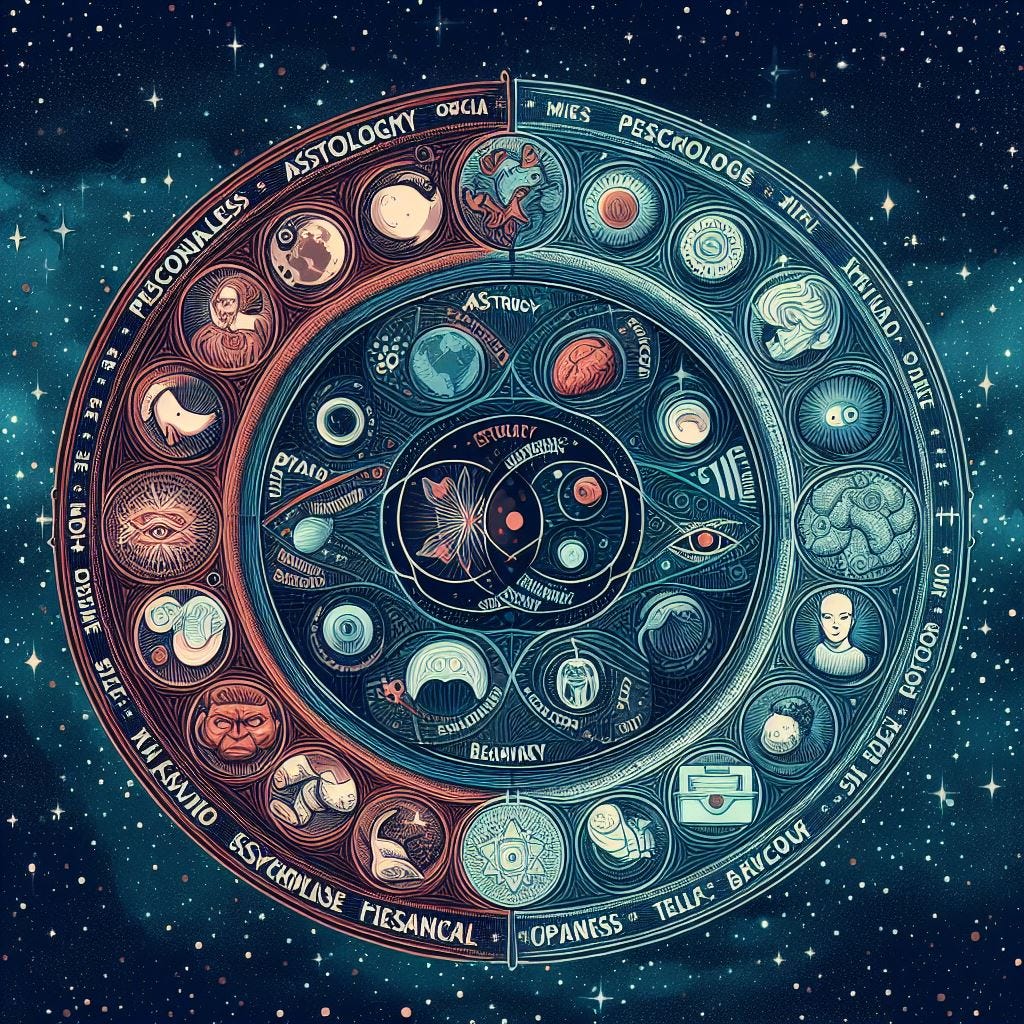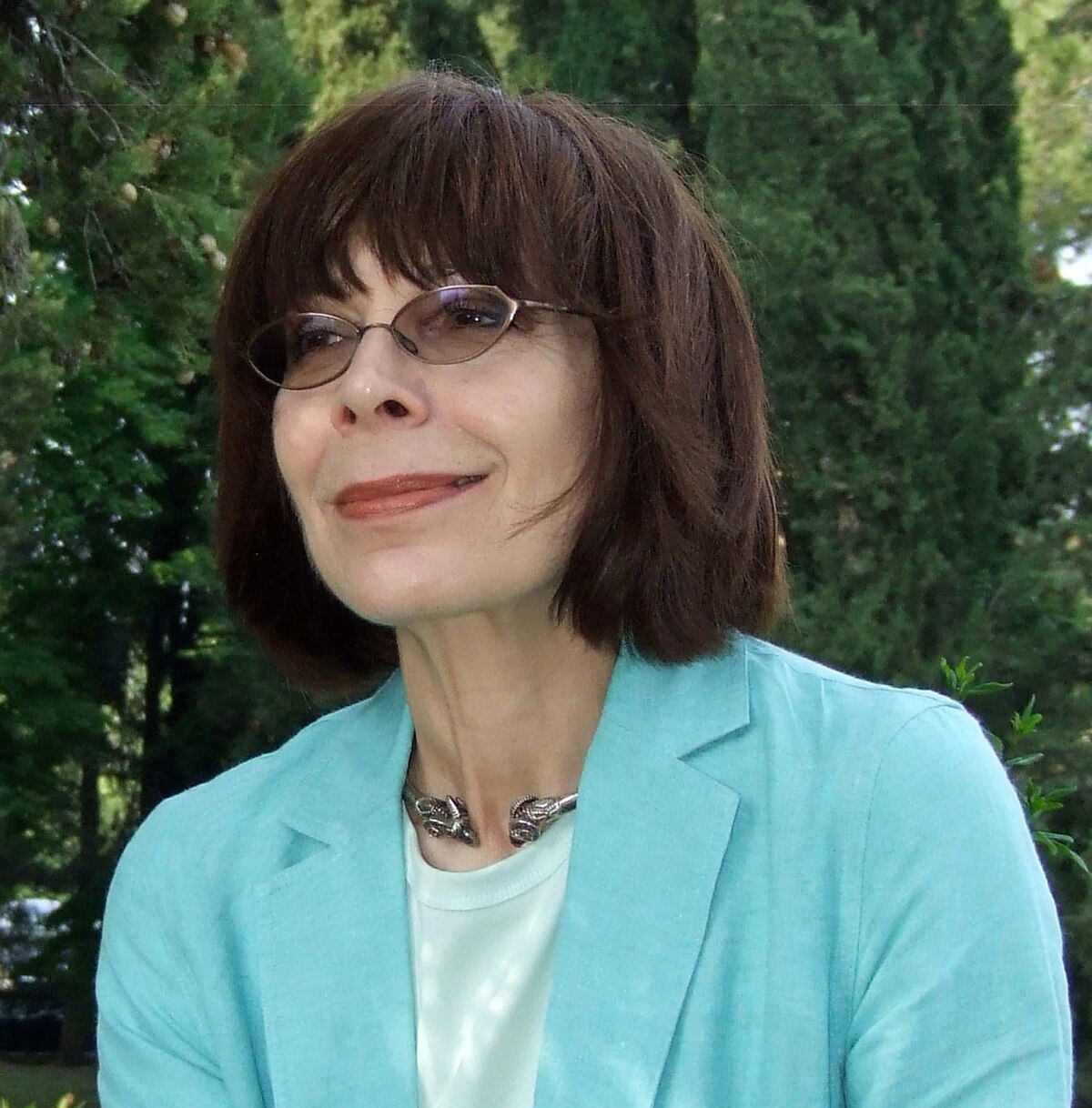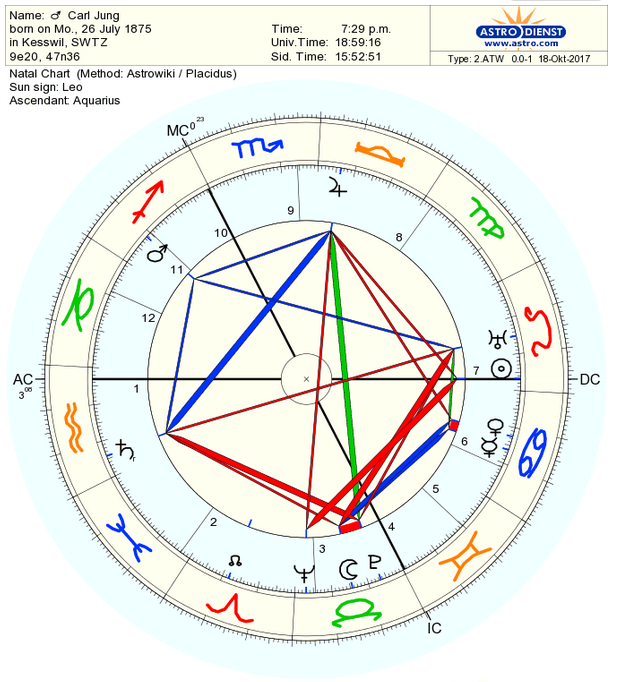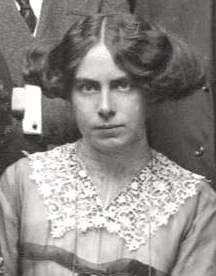- Joined
- Sep 21, 2009
- Messages
- 440
I've seen people talk about it, and mention the Jungian concept of the shadow in particular when doing so. I happen to be very familiar with Jung's work because I was on a psychology forum for several years where we picked apart Myers-Briggs, Keirsey, Socionics, Lenore Thompson, John Beebe, etc... with everything ultimately going back to long-winded discussions about Jung and what he meant, and everyone wondering which system of personality typology stemming from his ideas worked best or was most faithful to the original, etc.
As far as I know, though, Jung wasn't an astrologer, and didn't start any astrological schools. Not to say he didn't study astrology or alchemy, but ultimately he never really got deep enough into those topics to innovate in them, his main contributions are in the field of psychotherapy. The concept of the "shadow" in Jung's work actually has nothing to do with astrology specifically, though the description I'm hearing people use is remarkably close to what the shadow actually does. Essentially, people have a conscious self, an identity or ego, and tend to deal poorly with aspects of themselves that don't fit with that identity. That can mean they manifest those parts of themselves in a very primal, negative way, or that they deny or suppress those parts of themselves entirely.
The only difference is, Jung would have defined four functions... Intuition, Feeling, Thinking, and Sensing. Jung theorized, basically, that someone whose mind is dominated by Intuition would tend to repress or struggle with Sensing, someone whose mind is dominated by Thinking would tend to repress or struggle with Feeling, etc. Someone who naturally focuses on the introverted, subjective factor might also tend to repress awareness of the extraverted, objective factor.
That said, this "Jungian Astrology" idea is pretty interesting. Now that you mention it, it's pretty obvious how someone who is consciously very Aries might struggle with their Libra side, someone who is very Taurus might struggle with their Scorpio side, someone who is very Cancer might struggle with their Capricorn side, etc. I can definitely see why someone would notice that the signs that are opposing each other seem very much like opposing functions in Jungian psychology (which is what I'm familiar with).
What's really funny about this whole situation to me, is that when I'm not studying astrology and casting charts for people, I'm having people take MBTI tests and trying to figure out what their dominant psychological function is, whether they're Introverted Intuitive types or Extraverted Sensing types, maybe even using Beebe's archetypes to try and figure out the "role" each function attitude is playing in their psyche, etc. It just... somehow never occurred to me to try and use them together. And for that reason, it kind of blows my mind that someone out there apparently attempted to combine two subjects I'm obsessed with into one thing, and I never heard about it until now.
I guess what I'm wondering at this point is... does Jungian astrology have much of a connection to Jungian psychology, and who exactly came up with it? It's just a little odd because I doubt Jung himself applied his own ideas to astrology in this way. Though I know for sure he did come up with the idea of synchronicity, which is actually a proposed mechanism by which astrology could work without planets physically influencing people through something like, say, gravitational influences. I also heard someone reference his idea of the collective unconscious once when explaining why tropical signs usually aren't reversed in the Southern Hemisphere. So I was definitely aware some astrologers were familiar with an idea or two of his, but I didn't know there was a whole system of astrology named after Jung himself.
As far as I know, though, Jung wasn't an astrologer, and didn't start any astrological schools. Not to say he didn't study astrology or alchemy, but ultimately he never really got deep enough into those topics to innovate in them, his main contributions are in the field of psychotherapy. The concept of the "shadow" in Jung's work actually has nothing to do with astrology specifically, though the description I'm hearing people use is remarkably close to what the shadow actually does. Essentially, people have a conscious self, an identity or ego, and tend to deal poorly with aspects of themselves that don't fit with that identity. That can mean they manifest those parts of themselves in a very primal, negative way, or that they deny or suppress those parts of themselves entirely.
The only difference is, Jung would have defined four functions... Intuition, Feeling, Thinking, and Sensing. Jung theorized, basically, that someone whose mind is dominated by Intuition would tend to repress or struggle with Sensing, someone whose mind is dominated by Thinking would tend to repress or struggle with Feeling, etc. Someone who naturally focuses on the introverted, subjective factor might also tend to repress awareness of the extraverted, objective factor.
That said, this "Jungian Astrology" idea is pretty interesting. Now that you mention it, it's pretty obvious how someone who is consciously very Aries might struggle with their Libra side, someone who is very Taurus might struggle with their Scorpio side, someone who is very Cancer might struggle with their Capricorn side, etc. I can definitely see why someone would notice that the signs that are opposing each other seem very much like opposing functions in Jungian psychology (which is what I'm familiar with).
What's really funny about this whole situation to me, is that when I'm not studying astrology and casting charts for people, I'm having people take MBTI tests and trying to figure out what their dominant psychological function is, whether they're Introverted Intuitive types or Extraverted Sensing types, maybe even using Beebe's archetypes to try and figure out the "role" each function attitude is playing in their psyche, etc. It just... somehow never occurred to me to try and use them together. And for that reason, it kind of blows my mind that someone out there apparently attempted to combine two subjects I'm obsessed with into one thing, and I never heard about it until now.
I guess what I'm wondering at this point is... does Jungian astrology have much of a connection to Jungian psychology, and who exactly came up with it? It's just a little odd because I doubt Jung himself applied his own ideas to astrology in this way. Though I know for sure he did come up with the idea of synchronicity, which is actually a proposed mechanism by which astrology could work without planets physically influencing people through something like, say, gravitational influences. I also heard someone reference his idea of the collective unconscious once when explaining why tropical signs usually aren't reversed in the Southern Hemisphere. So I was definitely aware some astrologers were familiar with an idea or two of his, but I didn't know there was a whole system of astrology named after Jung himself.







